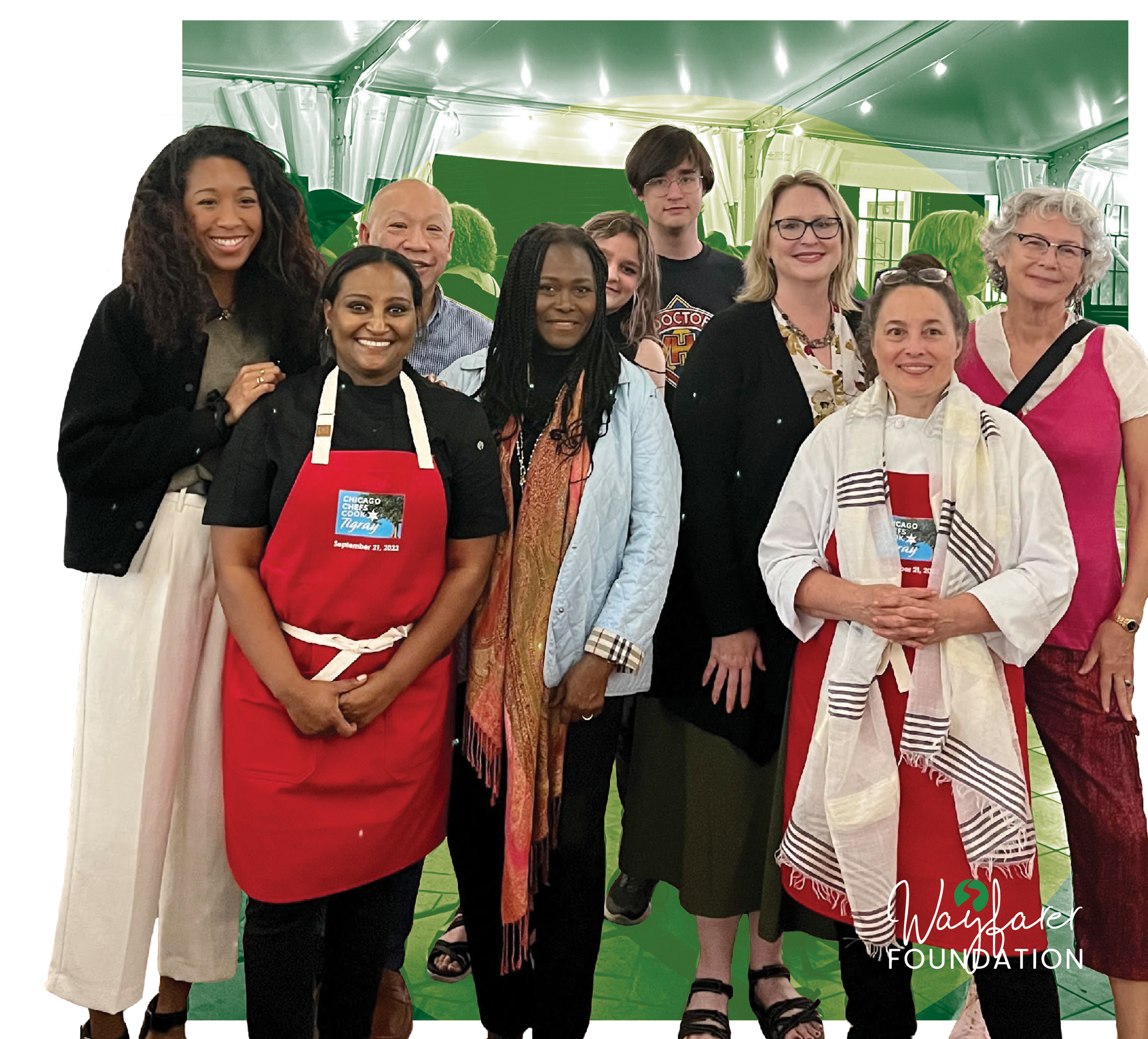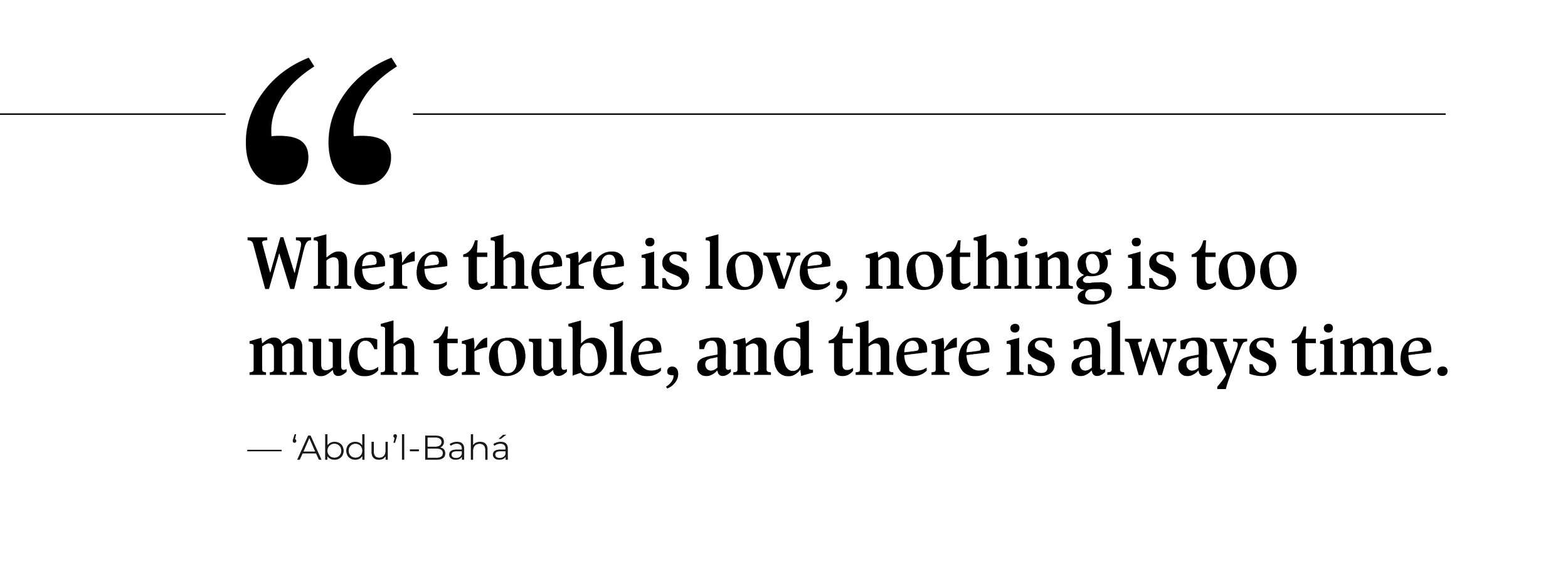Wayfarer Foundation partners with nonprofits to co-create a unified world where all people work together for peace, justice, and prosperity.
ABOUT
WAYFARER
WHO WE ARE
Wayfarer Foundation launched in 2021 and was inspired by Bahá’í principles which are universal in nature. Steve Sarowitz, a Bahá’í philanthropist, founder and chairman of Paylocity (Nasdaq: PCTY), director of Payescape, and partner in Wayfarer Studios, started Wayfarer Foundation to be the philanthropic engine for his spiritually-rooted giving.
Humanity has reached a historical turning point. Our futures have become increasingly interwoven, transforming the vastness of the world into the interconnectedness of a neighborhood. Forces such as racism, nationalism, sexism, classism, and religious animosity are weakening the foundations of democracy on every continent and pitting nations and peoples against one another.
Even so, there is a growing global movement to build communities characterized by understanding and cooperation among diverse people. Bad news seems to rule the day, but there is much good news to celebrate on our journey toward a unified world:
1. Over the last 50 years, more than 1,500 reforms enhancing women’s economic empowerment were passed in every country, and there is a growing trend toward redefining masculinity.
2. Global efforts have reduced extreme poverty by one billion people worldwide since 1990. (2)
3. Developing countries significantly increased enrollment in secondary education. (3)
4. Movements have reduced violence to its lowest point in human history and given rise to more empathy. (4)
5. Since the 1960s, interfaith marriages in the U.S. doubled to 40%. (5)
Wayfarer Foundation’s mission plays a role in increasing, supporting, and amplifying the good news. We know philanthropy has not always operated in a way that leads to a more prosperous future for all. The truth is: Wayfarer Foundation won’t be perfect either, but we commit to being the kind of foundation that tries to do things differently, that centers those who have traditionally been left out, and that operates with more love.
In particular, as we build our organization from the ground up, we commit to these four pillars. Together, they make up what we call the Wayfarer Way:
Advancing Justice
Nurturing Spirituality
Embracing Community
Cultivating Resilience
This report will outline the steps Wayfarer Foundation took to embody these commitments in 2022 through our operations and through the partners we were honored to support.
THE WAYFARER WAY
Wayfarer Foundation lives and works in Wilmette on unceded land that is most recently home to the Council of Three Fires, the Bodéwadmik (Potawatomi), Anishinaabeg (Ojibwe), and Odawak (Odawa). We also acknowledge the more than 1,100 Native Nations who live on this continent and have done so since time immemorial.
Rooted in Bahá’í principles, we honor the long traditions of land stewardship and spirituality that infuses every aspect of Indigenous cultures and the destiny described in the Bahá’í sacred texts that Native peoples will “enlighten the whole world.” In particular, as a philanthropic organization, we honor the stewardship and generosity that has existed on this land for millennia through such practices as giveaways and potlatch ceremonies; an approach to giving that is embodied in the Lakota word wacantognaka, meaning to give freely for the wellbeing of one’s people.
Wayfarer seeks to not only acknowledge our Native relatives but to take action through the following commitments:
To be a good relative: We recognize that everything and everyone is connected by spiritual, natural, and social relationships; effective philanthropy acknowledges and respects those relationships.
To respect the sovereignty of multi-national Indigenous nations: We seek to disrupt the patterns of colonialism, injustice, extraction, and exploitation that have characterized much of both U.S. and philanthropic history by collaboratively sharing information and data with permission and consent from our partners.
To directly support Native-led nonprofits: We recognize that less than five cents of every philanthropic dollar go to Native-led organizations. Justice and equity require that we address this imbalance.
To amplify the voices of Native partners and peoples: Rather than speak for our partners, we seek to co-create spaces where their voices can be heard whenever possible.
To honor the diversity that exists among Native peoples: We co-create Indigenized spaces that recognize and respect the cultures of our partners in our gatherings.
LAND ACKNOWLEDGMENT
(1) The World Bank, Women, Business and the Law https://thedocs.worldbank.org/en/doc/889361582922513535-0050022020/original/WBL2020Infographic.pdf
(2) United Nations Millenium Development Goals https://www.un.org/millenniumgoals/poverty.shtml
(3) The World Bank, World Development Report 2018 https://www.worldbank.org/en/publication/wdr2018
(4) The Wall Street Journal https://www.wsj.com/articles/SB10001424053111904106704576583203589408180
(5) The Christian Science Monitor https://www.csmonitor.com/The-Culture/Family/2014/1123/Interfaith-America-Being-both-is-a-rising-trend-in-the-US
Top banner image: © Nancy Wong




